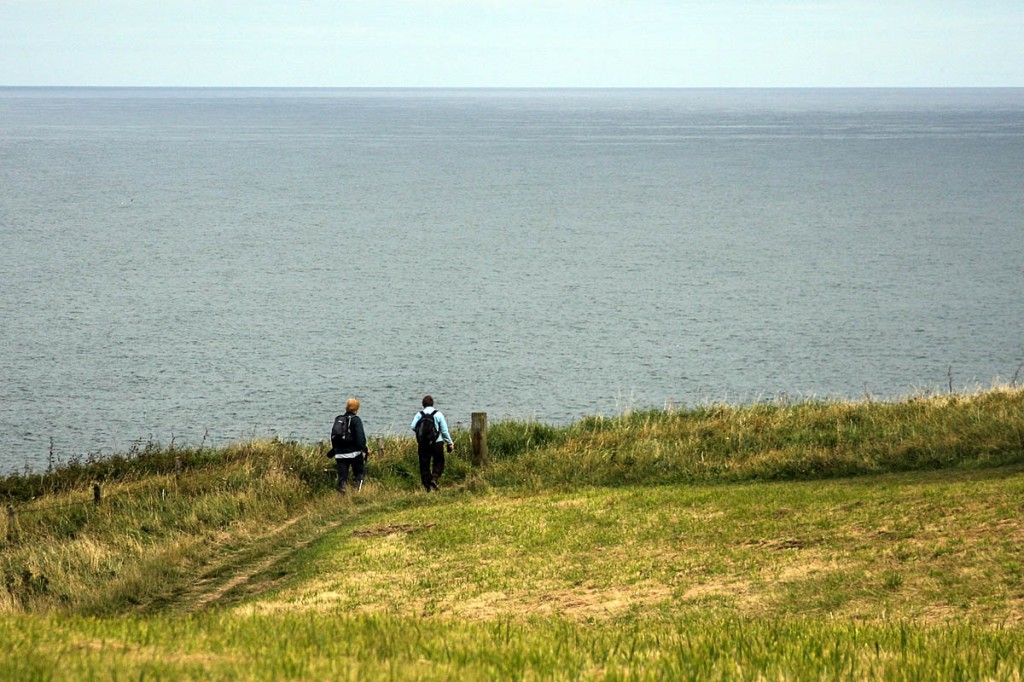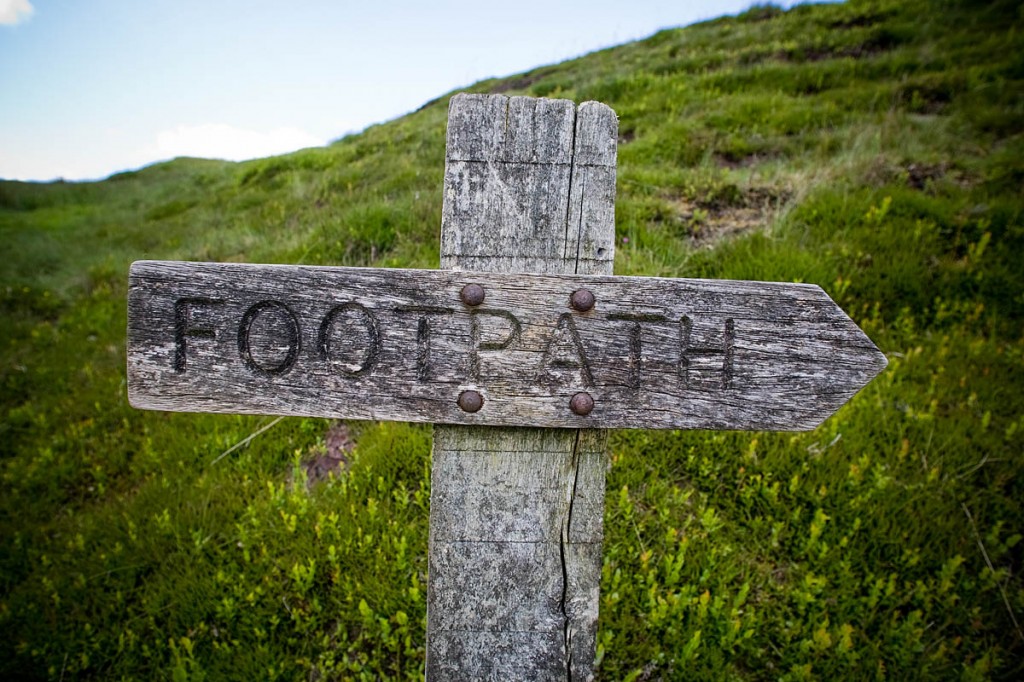Almost a tenth of footpaths in England and Wales are unusable, and more than a half present problems to walkers.
The numbers were revealed following the biggest ever survey of rights of way by The Ramblers.
The walkers’ charity said obstacles to using paths could result in a reduction in the number of people walking and a consequent deterioration in the nation’s health.
It urged walkers to report any problems they encounter to them.
The Big Pathwatch survey by the campaigning organisation found that, overall, most paths were in a good condition. 56 per cent of paths were well kept and signposted, but more than a third – 35 per cent – were in need of improvement and 9 per cent were difficult or impossible to use.
Citizen surveyors walked every path in almost half the total area of England and Wales, recording more than 100,000 features including attractive views and interesting flora and fauna; but there were also locked gates, barbed wire across paths and missing or misleading signs.
More than half – 55 per cent – of reported features were negative, with muddy, ploughed or potholed paths, unsafe stiles, gates or bridges, heavy undergrowth or overhanging vegetation and, in particular, missing, broken or misleading signs commonly reported. Many of these made paths difficult or impossible to use.
However, 45 per cent of features identified were positive, with attractive views topping the charts.
The Ramblers’ director of advocacy and engagement Nicky Philpott said: “Walking is great for our health and mental wellbeing. It’s a cheap form of transport and exercise, and a well maintained path network could provide the solution to some of the country’s biggest challenges.
“The results of the Big Pathwatch show that while many paths are well kept, a significant number are in serious need of improvement, with many of these completely blocked or very difficult to use, resulting in people having to abandon their journey and turn back.
“Although local councils are responsible for maintaining our paths, we’re acutely aware that rights of way are competing against other services for a share of increasingly squeezed budgets. There’s been a 20 per cent cut in the workforce looking after our paths over the last five years, so it’s more important than ever that the Ramblers, as guardians of the footpath network, are here to help.
“The Ramblers should be at the forefront of solving path problems, working with local authorities to maintain the path network.
“By using insight, such as findings from the Big Pathwatch, and deploying our 150 volunteer path maintenance teams, we know we can be instrumental in helping maintain this key community asset, which in turn will save money for public health.”
The charity pointed out recreational walking is one of the country’s most popular pastimes, with more than nine million people taking part regularly.
It has proven mental health benefits, keeps people fit and helps reduce obesity, as well as supporting rural economies, with more than £6bn spent annually by walkers, supporting almost ¼ million full-time jobs.
Ms Philpott called on walkers to help keep footpaths in good order. She said: “It shouldn’t just be up to local authorities to ensure the upkeep of our paths.
“We all have a part to play in looking after them, which is why we want everyone to take responsibility for their paths. It can be as simple as regularly using your local paths. Get out and walk them.
“If you see a problem, use the Pathwatch app to report it and we’ll pass the information on to the local authority. Problems reported early that would be quick and cheap to fix can become difficult and costly over time.
“So when you’re out walking, pick up rubbish, carry a pair of secateurs and snip away overhanging vegetation. Or join one of our path maintenance teams and help keep paths clear.”
Pathwatch can be accessed via The Ramblers’ website.


R Webb
14 November 2016Plenty of signs on Herefordshire's paths. Path closed signs!
madcarew
16 November 2016I think Ms. Philpot will find Local Authorities have a statutory duty to keep paths open. Maybe Ramblers need to press government to carry out their statutory duties, not call for more volunteers. With rising retirement ages and shrinking pensions active volunteers will become a dwindling resource.....